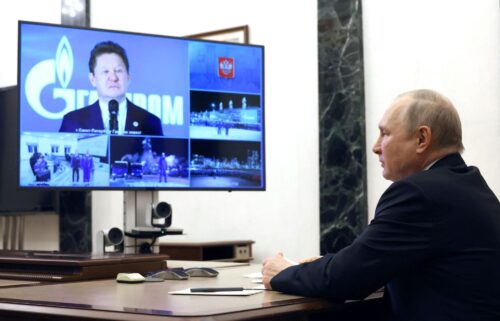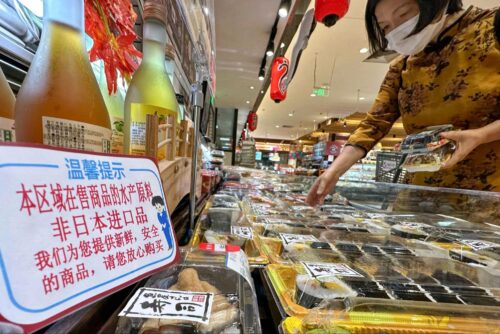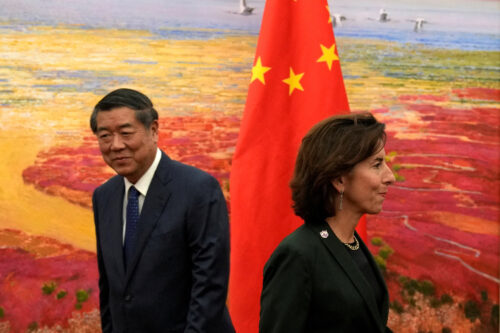News roundup: Would China win a trade war with the U.S.?
Top China news for November 11, 2016. Get this daily digest delivered to your inbox by signing up at supchina.com/subscribe.

Would China win a trade war with the U.S.?
Analysis of the upcoming Trump presidency, including a Bloomberg piece that explores a potential China-U.S. trade war, continues to dominate the news about China. In case the flood of recent coverage passed you by, don’t miss a special Sinica Podcast episode that discusses what Trump’s victory means for China and U.S.-China relations, and dip into our newsletters from yesterday and the day before that. The latest stories about America’s next president can be found in the usual categories below, along with articles about other topics that managed to break through the wall of talk about Trump.
The big news in China today was Singles’ Day, a celebration originally for young Chinese singles that Alibaba turned into an online shopping holiday in 2009. One-day sales reached $17.79 billion, easily beating 2015’s $14.3 billion. NPR put it into perspective: “Last year on Thanksgiving Day and Black Friday…American shoppers spent about $4.45 billion online (and $12 billion at brick and mortar shops). And that’s over the span of two days, not just one — and counting all retailers, not just one site. Cyber Monday online sales, meanwhile, were just over $3 billion.” Not all sources trust the record numbers, however. As The Wall Street Journal reports, “Critics contend these numbers are inflated by orders that never ship or are quickly canceled, and Singles’ Day revenue has now come under scrutiny by regulators in China and the Security and Exchange Commission in the U.S.”
Two other interesting stories deserve a special note. The first, in the Washington Post, details how every five years, independent political candidates in China face down police harassment and legal barriers as they run for office at the district, county and village levels. The elections for the “People’s Congresses” were barely covered by the media in China, while the Trump-Clinton battle received substantial attention. The other story, an analysis from Quartz, explains how China may emerge as the world’s leader in climate policy, as Trump promises to roll back many U.S. commitments to reduce emissions.
Other China stories to watch are linked below.
BUSINESS:
- China’s Singles’ Day shopping craze turns into environmental nightmare / Caixin
As “China recycles less than 20 percent of packaging waste,” the “1 billion parcels expected to crisscross [the] country in coming weeks may choke landfills.” - China positioned to gain global sway after Trump win / WSJ
Many countries near China — particularly the Philippines and Malaysia, which were already warming to China before the election, and Australia, which was reported to “seek deals that will benefit it wherever it can” — are likely to be pulled closer to China with the collapse of the U.S.-led Trans-Pacific Partnership. Moreover, protectionist policies from the U.S. may have little effect on China’s economic reach. For example, in steel, American purchases only account for 2.5 percent of Chinese exports. - What is lost by burying the Trans-Pacific Partnership? / NYT
As Senate leaders have confirmed that the TPP will not be considered in the last days of the current Congress, its demise likely signals that other countries “will move forward in negotiating their own trade agreements that exclude the United States,” Obama administration officials have argued. As it stands, “some 18,000 tariffs” on imports of U.S. goods will remain in place, and the future is less clear for international standards on “digital commerce, intellectual property rights, human rights and environmental protection.” - China and Trump make copper a red-hot bet / WSJ
“Copper’s 14-day winning streak is the longest on record for at least 28 years,” The Wall Street Journal reports. The commodity’s price rose by 22 percent in two weeks, buoyed by news of increased manufacturing output from both the U.S. and China in October and president-elect Trump’s promise to swiftly ramp up infrastructure spending. - China’s tech giants are cloning the Apple Store / Bloomberg
Alibaba and DJI, facing a slowdown in the growth of ecommerce, are turning toward physical stores, which can offer customers hands-on explorations of products and loyalty-engendering customer service. “In the coming years, we anticipate the birth of a reimagined retail industry, driven by the integration of online, offline, logistics and data,” wrote Jack Ma, Alibaba’s cofounder, in a note to shareholders in October. - In China, three Americans have created an Uber for English lessons / Tech in Asia
Yoli, an education startup based in Beijing, offers 15-minute, on-demand English lessons through WeChat, the hugely popular Chinese messaging app from the tech giant Tencent. More than 10,000 classes have been conducted in the past year. “If you can build what [Tencent] lacks without competing with them, that’s the trick,” says one of Yoli’s co-founders.
POLITICS:
- Trump sees Japan’s Abe as ally in push back against China: adviser / Reuters
Despite a demand during his campaign “that Japan pay more for the upkeep of U.S. forces on its soil,” Trump may be set to deepen the U.S.-Japan alliance as a counterweight to China, according to a security adviser to Trump. The Japanese prime minister and American president-elect are set to meet next week, when they may discuss military budgets and the possibility of joint patrols in the South China Sea. - 8 more pro-democracy lawmakers in Hong Kong may lose seats / NYT
Hong Kong’s High Court is considering expanding the list of newly elected representatives barred from taking seats in the Legislative Council to 10, after an interest group representing taxi drivers filed for judicial review of the oaths of eight additional candidates. This has the potential to reverse LegCo’s internal decision to accept the oaths of six of these eight candidates, and allow the other two to retake their oaths. - The defiant 25-year-old woman at the heart of Hong Kong’s political meltdown / TIME
Yau Wai-ching, the youngest woman ever elected to Hong Kong’s legislature and a strong supporter of the city’s autonomy from mainland China, has earned the nickname of “Rough-Mouth Sister” through her use of profanity. She described herself as lacking “particularly eye-catching grades” and as a reader of Chinese classics rather than a TV watcher. Now her controversial actions at her oath-taking ceremony have thrown her political position into question while raising the ire of some of her peers and Beijing. - Xi Jinping vows to fight separatism and any attempts to split territory from China / SCMP
In a speech on Friday, President Xi Jinping underscored Beijing’s recent interpretation of Hong Kong’s Basic Law, a move that blocked two pro-independence lawmakers in the city from taking office. Xi’s message also took aim at Taiwan and any ideas its leaders have about independence from mainland China: “All activities that intend to divide the country will certainly be firmly opposed by all Chinese people,” he said. “We will never allow anyone, any organization, any party to split off any tract of territory from China anytime, or in any way.”
SOCIETY:
- For Chinese women, a surname is her name / NYT
In China and in some other Asian societies, women traditionally keep their surname upon getting married, a practice that feminists note has roots in patriarchy rather than marital equality. - Tips on breaking through the glass ceiling in China / WSJ
In 2016, Chinese women earned an average of $660 a month, 22.3 percent less than the male average, according to a survey. Obtaining a Ph.D. and living in a city help them earn more. - Opinion: Why China’s rise means Hong Kong stars like Jackie Chan will be the last of their kind / SCMP
Hong Kong’s new generation of actors won’t achieve the global fame of past performers because of the city’s focus on creating films for mainland China, which calls for formulaic stories, tailored to local tastes, that don’t appeal to international audiences, writes Michael T. George. - ‘Mud dragon’ dinosaur unearthed by dynamite at Chinese construction site / CNN
A new species of winged dinosaur was found after workers at a construction site in Ganzhou set off dynamite that revealed the fossilized remains. Its name, Tongtianlong limosus, is a Chinese translation of “muddy dragon on the road to heaven,” which references the animal’s death by entrapment in mud. - Future of boxing in China is very bright and it begins with Zou Shiming / ESPN
Zou Shiming, a Chinese boxer who won three consecutive Olympic medals between 2004 and 2012, is an extraordinarily popular athlete in his home country. He’s a critical part of the sport’s expansion in China and in raising the global status of Chinese fighters.





